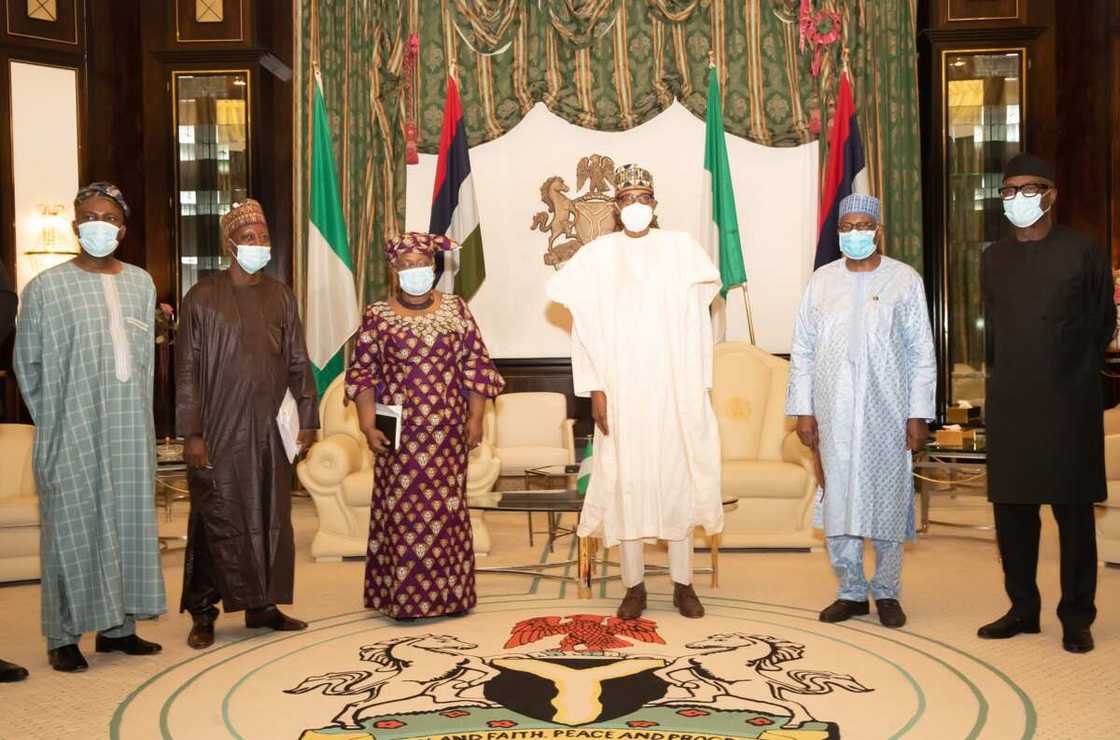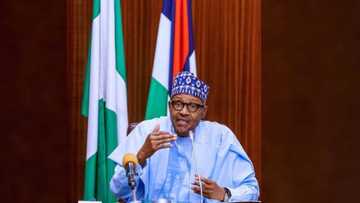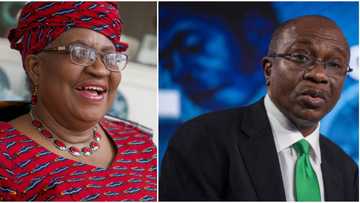Countries complaining about Nigeria’s multiple foreign exchange rates, Okonjo-Iweala reveals
- The issue of Nigeria's multiple exchange rates policy is a worrisome issue to WTO according to Okonjo-Iweala
- Specifically, she claimed that some countries have complained about it
- Meanwhile, she promised to table all these issues before the Central Bank Governor
PAY ATTENTION: Join Legit.ng Telegram channel! Never miss important updates!
Director-General of the World Trade Organisation, Dr. Ngozi Okonjo-Iweala, has on Monday, March 15, revealed that many people are worried about Nigeria’s multiple exchange rates policy.
She disclosed this while speaking with journalists in Abuja shortly after meeting President Muhammadu Buhari at the Presidential villa.
She added that the WTO is also concerned about Nigeria’s multiple exchange rates regime and how it would affect trade, Punch reports.

Source: Twitter
She said:
“The WTO is concerned about foreign exchange; the way we manage it, the way we use it and how we use it to support manufacturing or imports and exports in our economy.
“I think that we had that discussion with them. They complained about the exchange rate regime and we (Nigeria) try to explain.
“I shouldn’t say ‘we’ because I’m now DG WTO; it is for Nigeria’s representative to explain to the WTO, to those members complaining why we’re doing this.
“Eventually, I think having a strong exchange rate and being able to phase out of this; I think we’ll be heading in that direction. We’re also going to see the governor of the central bank, and will undoubtedly discuss some of these issues.”
In another development, Legit.ng had reported that as the price of oil remains low, the U.S dollar continues to fluctuate resulting in the rise and fall in prices of goods.
Food prices in Lagos markets continue to rise daily, following recent policy by the government and a series of happenings within the country.

Read also
Insecurity: Our best has not proved good enough, Buhari admits, says govt getting desperate
Whilst the government is focused on discouraging imports, the traders in the market are worried about the nation’s economy which reflects daily on the prices of goods.
A trader was quoted to have said:
“When the dollar rate falls, it brings about scarcity of some goods in the market because more of the currency would be needed to purchase goods in other countries but when the dollar rate is very weak, goods would be less expensive in other currencies, this in turn increases demand."
Meanwhile, Legit.ng had reported that though strange to hear, Nigeria's lower legislative body the House of Representatives, on Thursday, March 11, lamented that it is seriously bankrupt.
The spokesman of the House, who happens to be an All Progressives Congress (APC) lawmaker from Abia, Benjamin Kalu, made this disclosure to newsmen on Thursday, Premium Times reports.
Kalu claimed the present financial state of the green chamber is making it unable to carry out its constitutional functions, apart from not being able to meet thrice a week as required by law.
Source: Legit.ng



